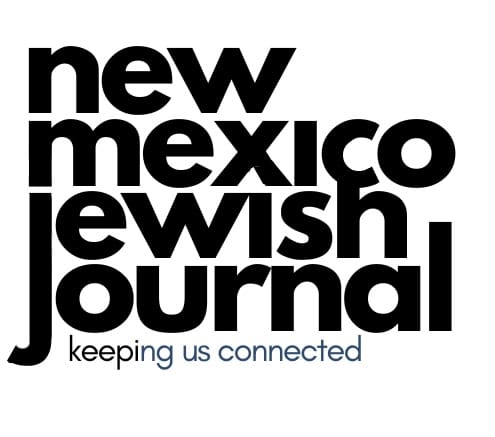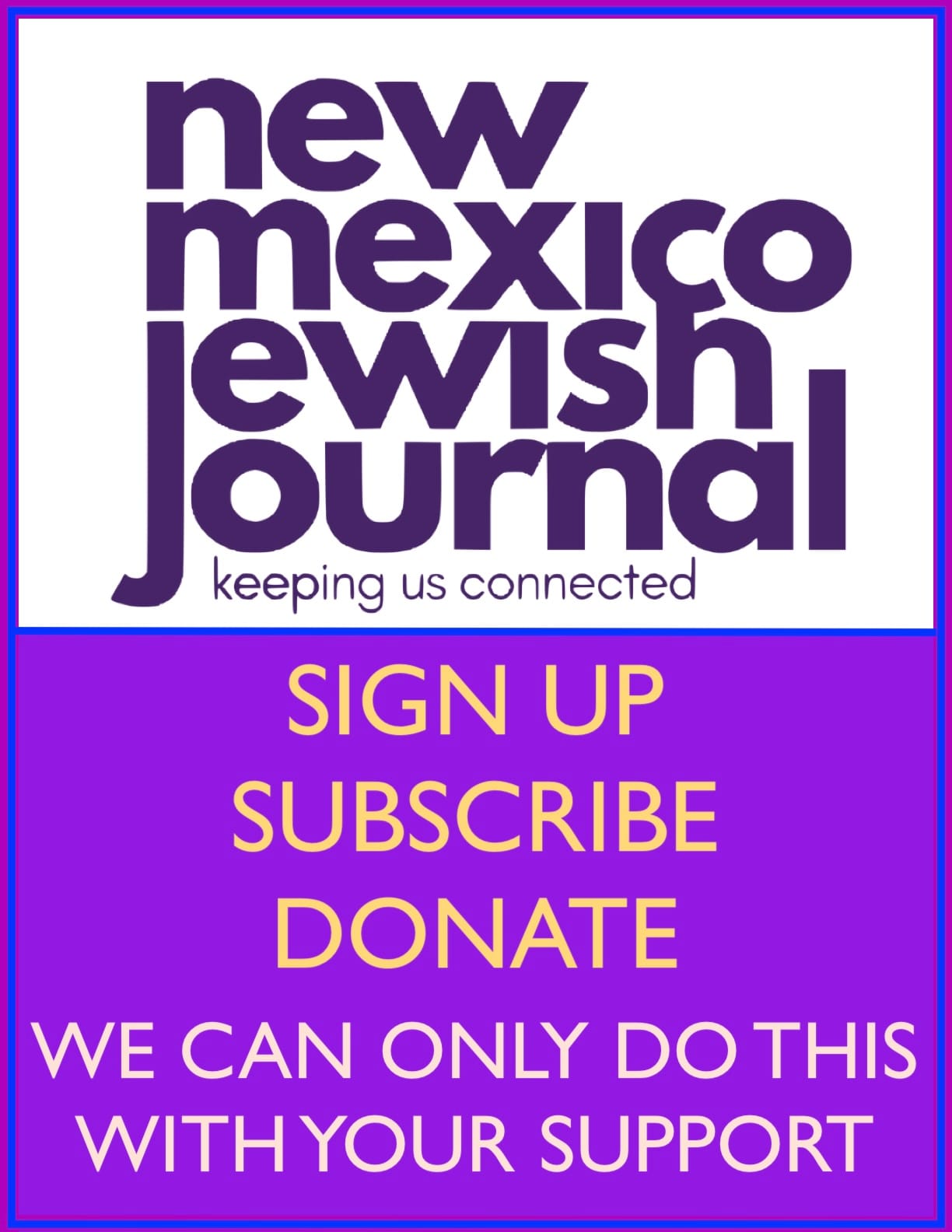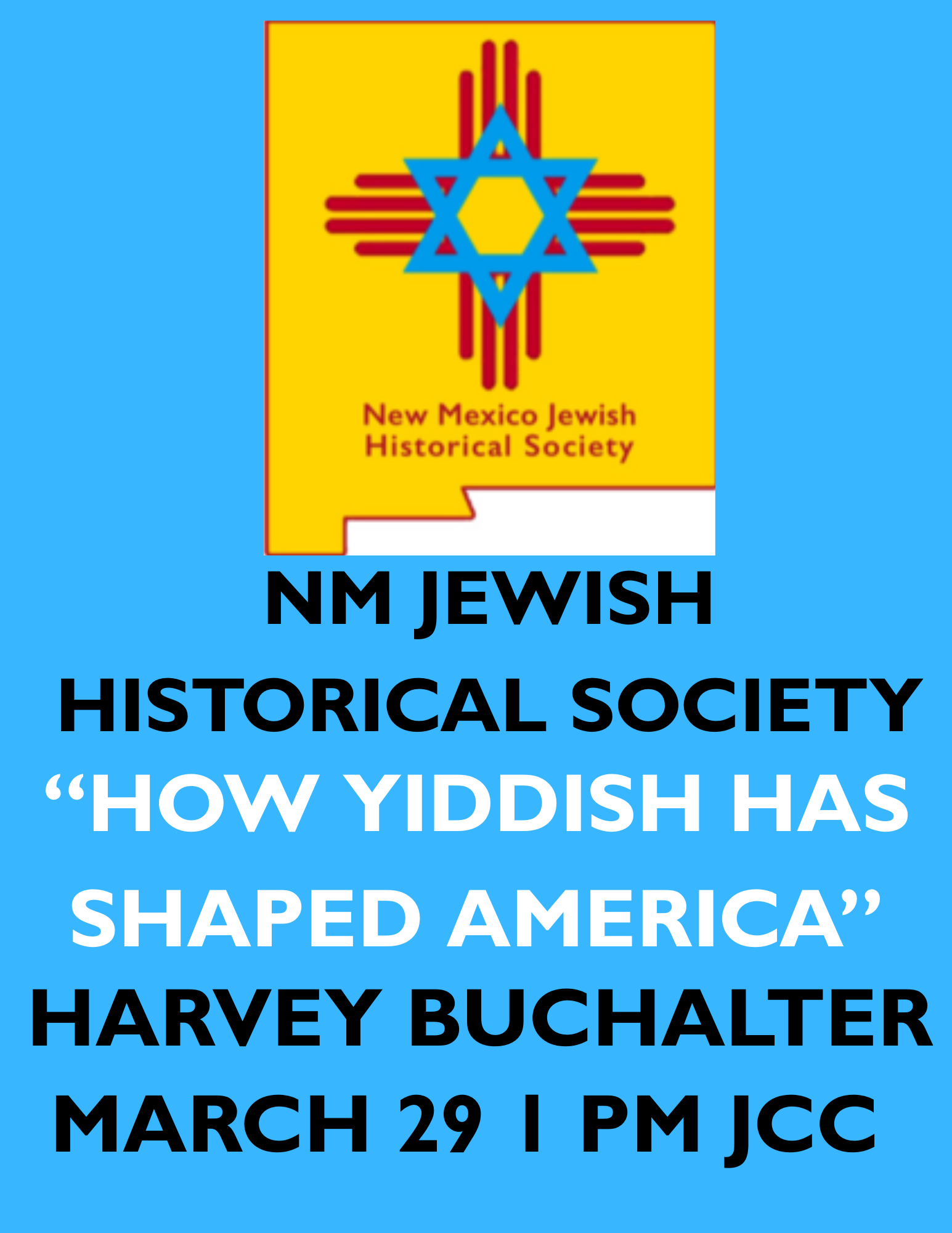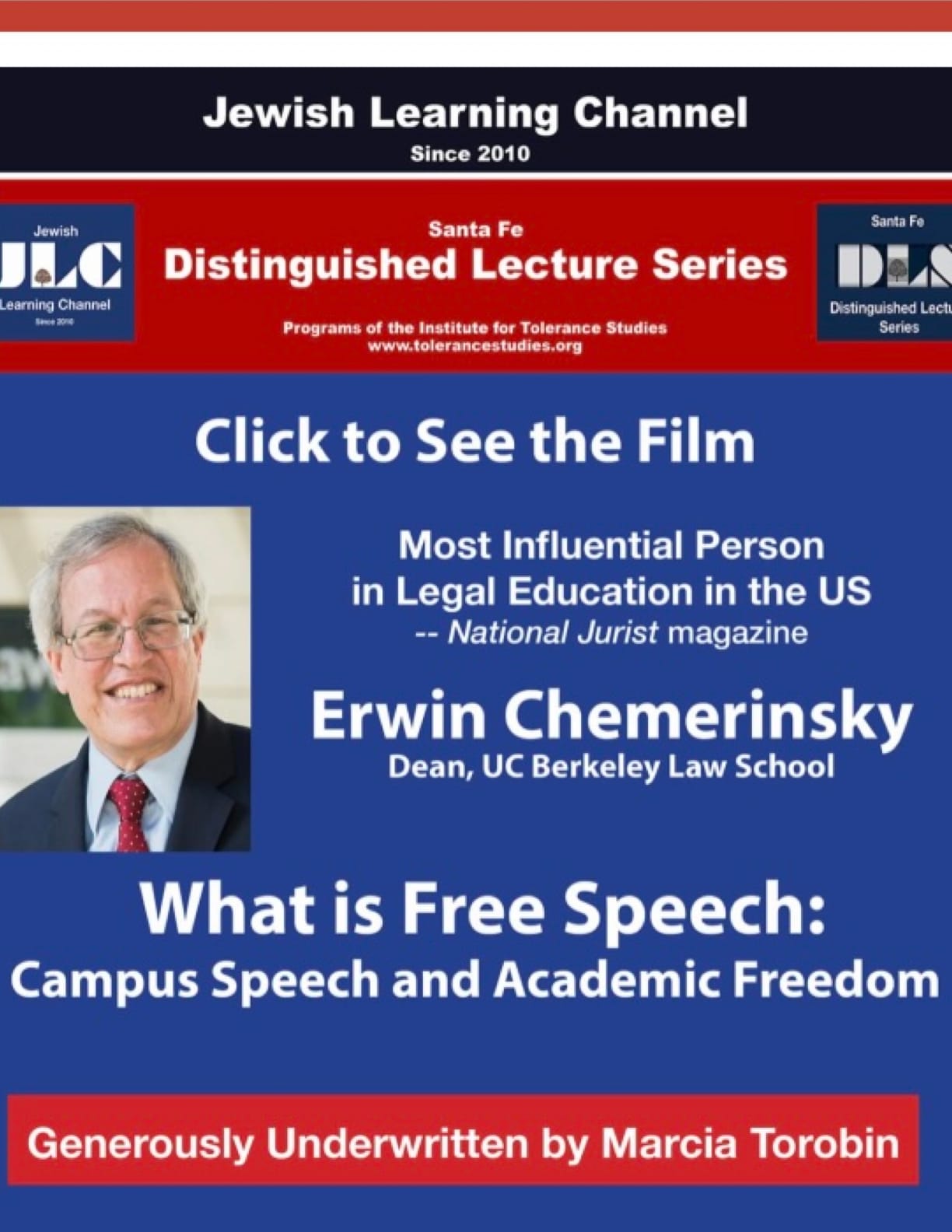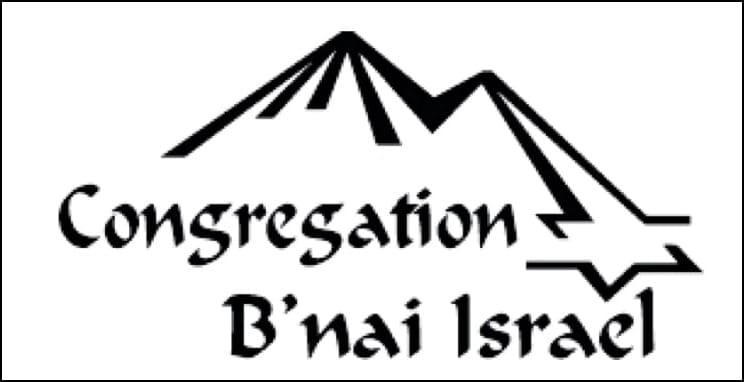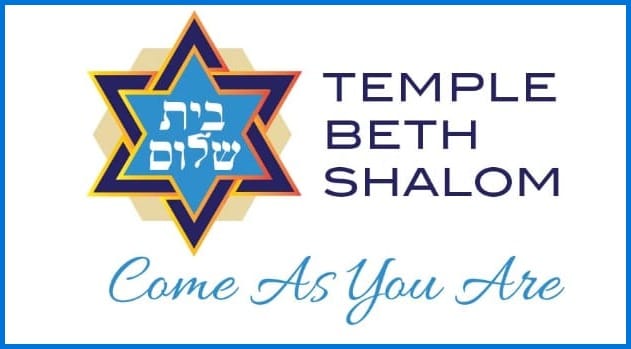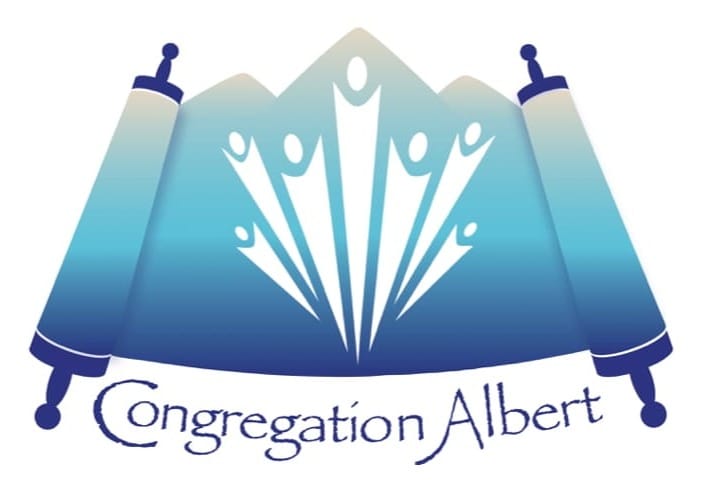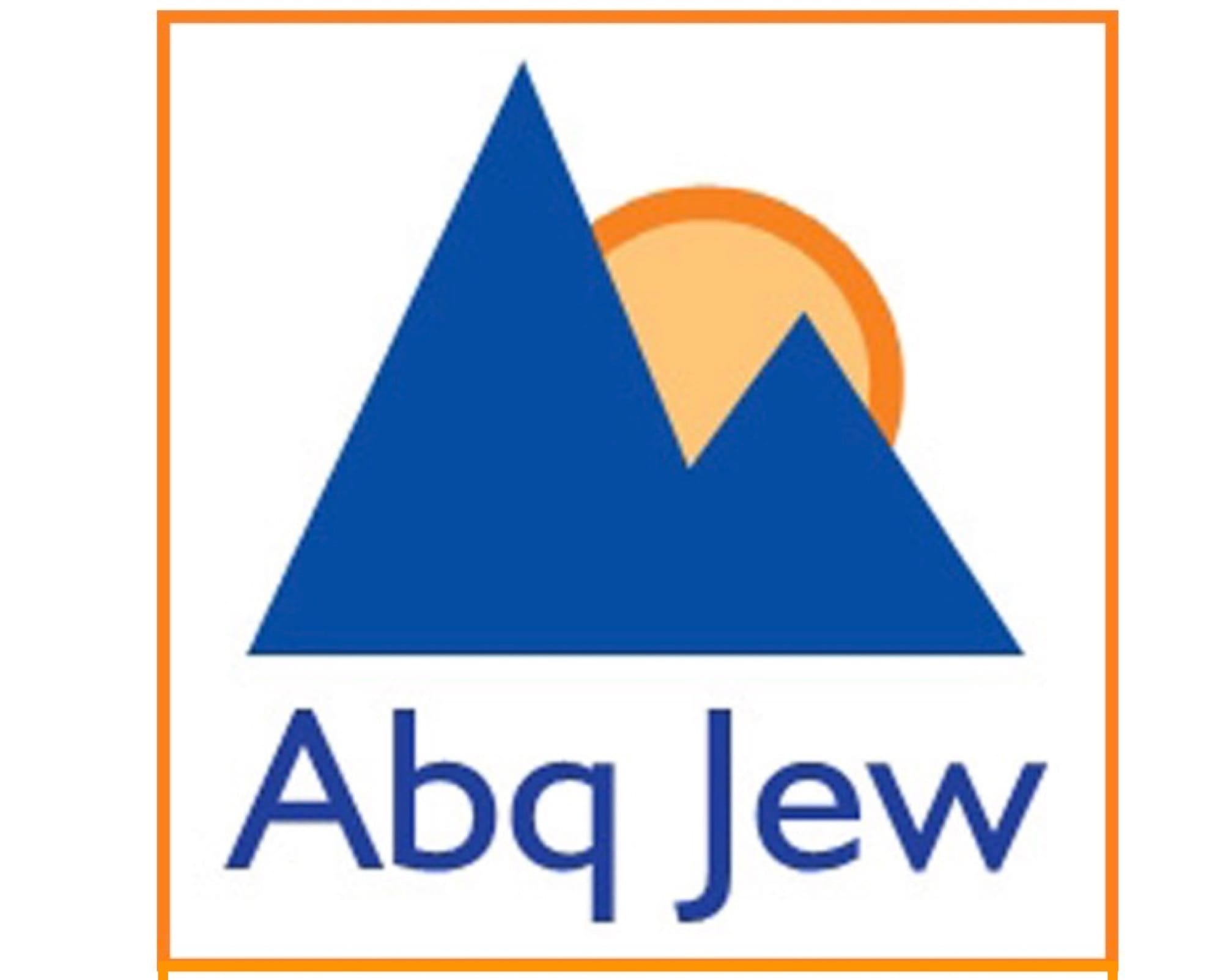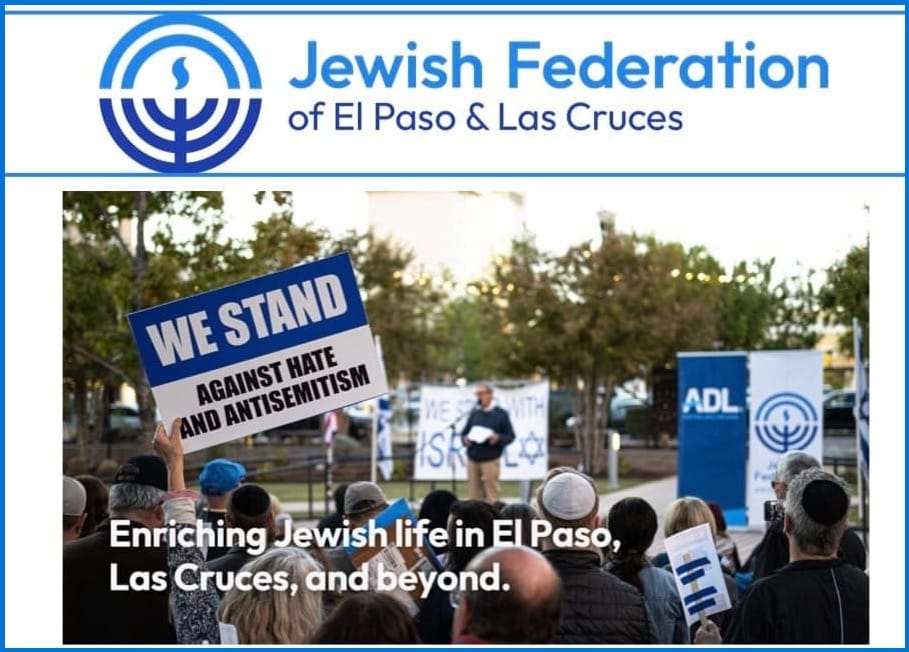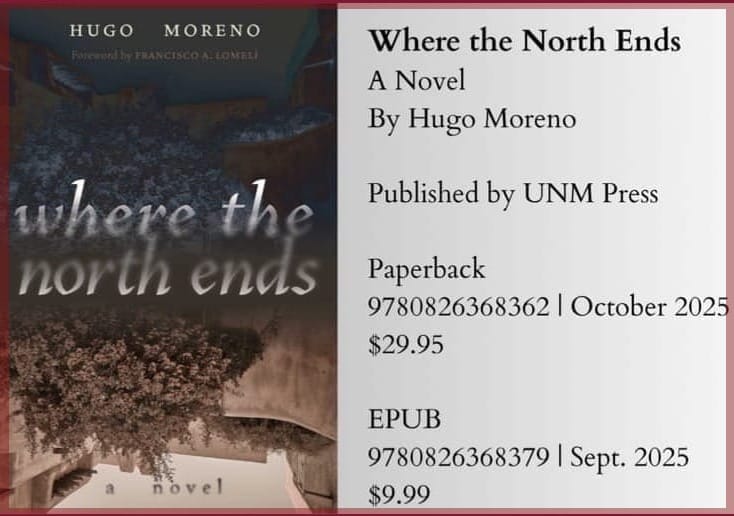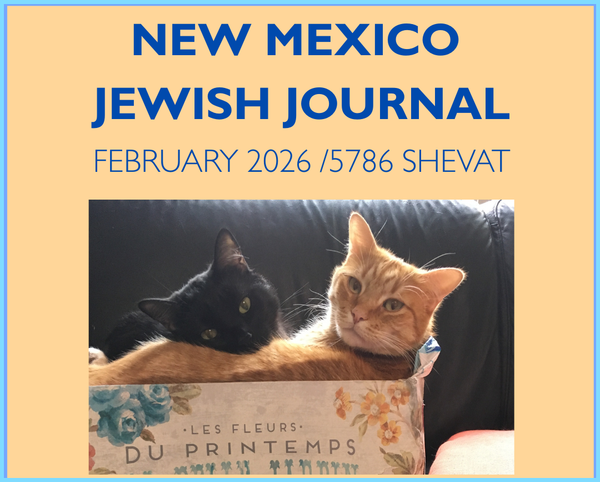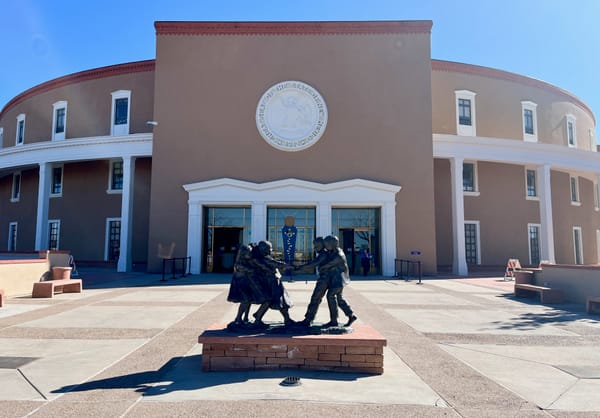"Wrestling with Public Statements," Rabbi Neil Amswych, Temple Beth Shalom, Santa Fe
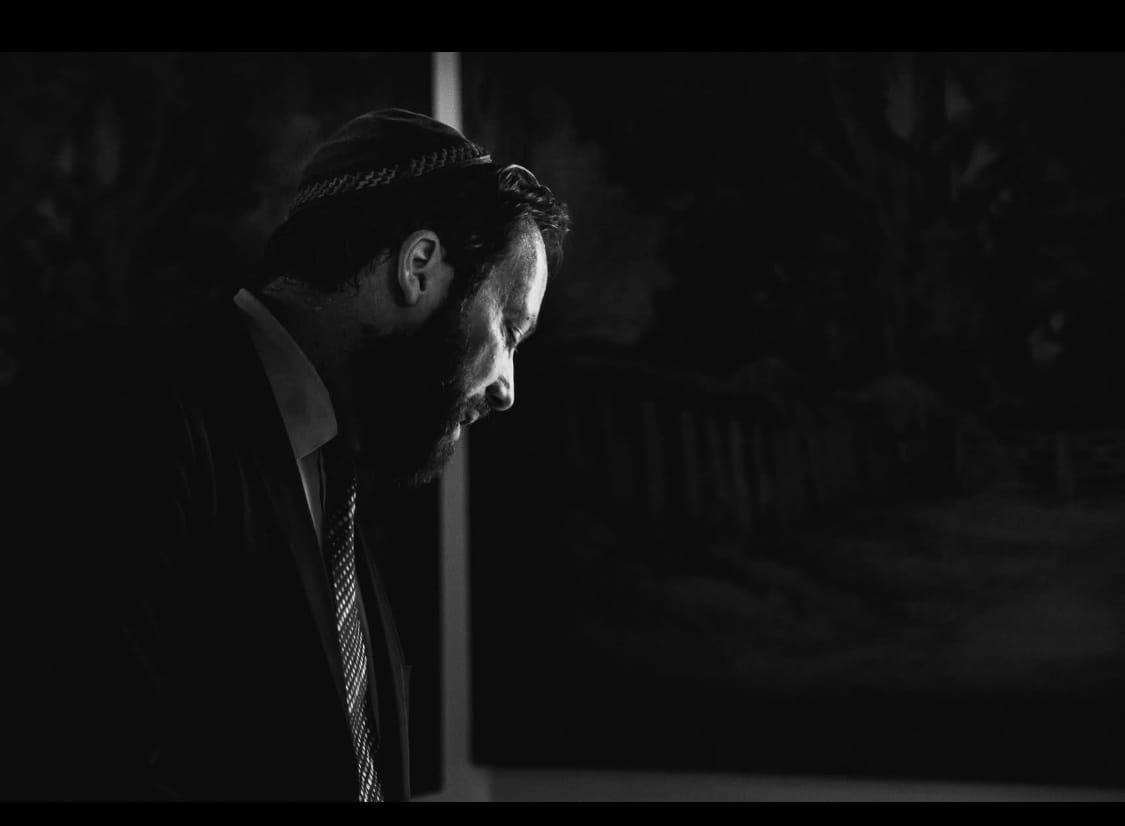
Rabbi Neil Amswych's Friday night sermon was reported on by the Jewish Telegraph Agency, after which the NY Times interviewed him (stay tuned). From JTA:
Here is the sermon, followed by the open letter that Rabbi Neil and more than a thousand rabbis have signed worldwide.
"Wrestling with Public Statements"
by Rabbi Neil Amswych ~ Sermon, July 25th
Watch video and/or read transcript below:
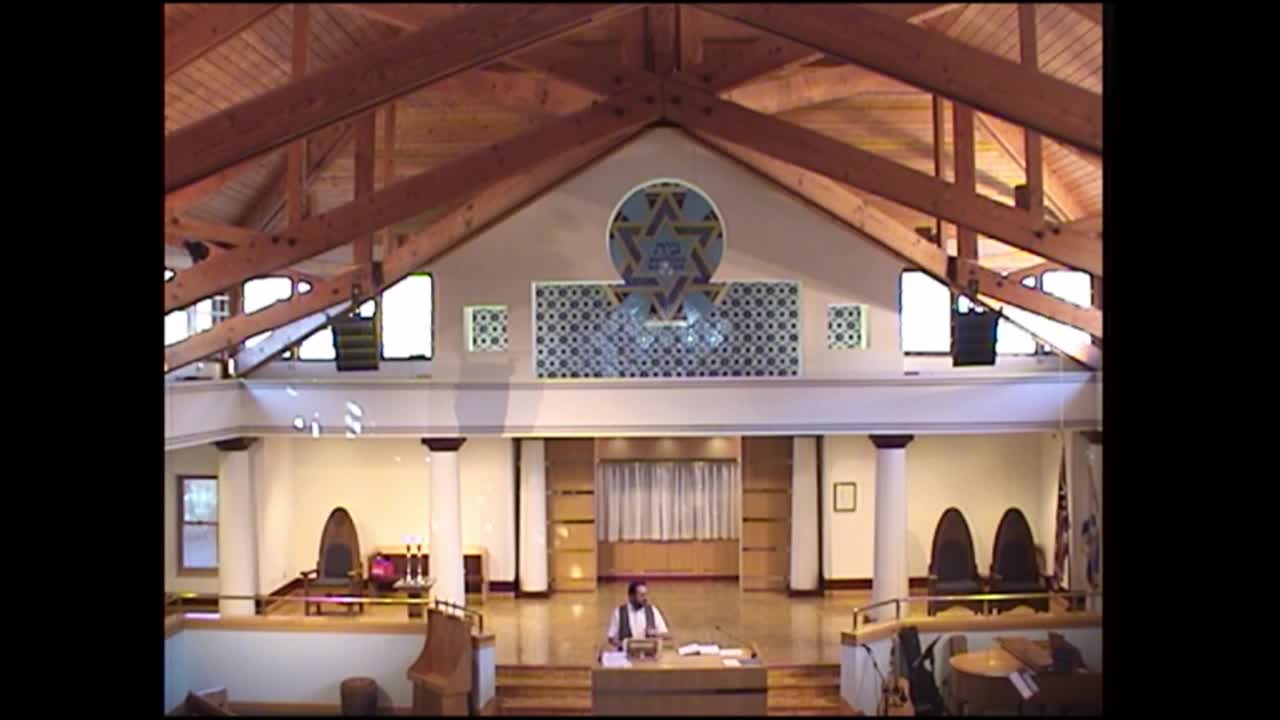
July 25th Sermon begins 45 minute in. click on image to watch and hear
A small but increasing number of members and former members have since the start of the Israel-Hamas war been asking me to speak publicly about Israel, in particular, to condemn certain actions taken by the Israeli government or the IDF. Since the October 7th terror attack, I have shared more sermons, more pre-Shabbat messages, more Facebook posts, more Torah Study sessions on Israel than on any other topic, but still the requests for a clear, condemnatory statement come. Yesterday, I signed a beautifully-written statement by three Rabbinic colleagues, which praised Israel, supported Israel, and also called on Israel to change its policies in Gaza an in the West Bank, but to be able to sign it, I had to go through a really interesting journey of questions, and tonight I’m going to share that rather personal journey.
Some context. Back in November 2016, at what was then the Social Justice Committee, Paul Kovnat shared that he had learned that young adult homeless people were preferring to sleep on the streets than stay in the Interfaith Shelter. I said that I would talk to my interfaith colleagues about it. Paul banged his hand on the desk, and shouted, “No! What are you going to do?” It was a hugely important moment in my Rabbinic journey. It’s easy for Rabbis to talk, to make public statements, talk is cheap, but Judaism is a religion of action. Talk has to be purposeful.
So, when faced with requests to make a public statement about Gaza, I found myself really struggling, because I didn’t see the point - it seemed like virtue-signaling. I can call on Netanyahu to change his policies but we all know that he will never, ever care about what I say, so what’s the point of wasting those words? And why when I’ve spoken far more about Israel than about any other topic in the last nearly two years, do I need to make a public statement at all? Everyone’s releasing public statements that change nothing, and those who know me know that I never do something just because everyone else is doing it.
In a world of statements, of marking our positions in the sand, a world of speaking and not listening, what’s the point of one more statement on Israel, especially when we’ve sat and studied it and discussed it at length in our community? Just after the terror attack, for example, I led a Torah Study session at which I clearly demonstrated that Jewish law says that we must do everything to get hostages back but not to the point of killing to get them back. I shared how nuanced that was, though, because Avram clearly goes to war to rescue Lot who has been taken captive (Gen 14), but I explained that most Jewish law condemns killing anyone to get hostages back. It does justify killing in war in order to protect one’s own people, though, and that’s where it all gets very complicated and nuanced. And that’s where I tend to live – in nuance, and not in black and white. So, when I condemn something, or speak about something, it’s usually not black-and-white.
When I gave my presentation on the Israel-Hamas War in March of 2024, for example, I clearly condemned Netanyahu, Hamas and the Palestinian Authority for their roles in this conflict. I mentioned during that presentation that Netanyahu literally funded Hamas with suitcases of cash in order to ensure that a two-state solution never came about, and that while the ultimate cause of the war must lie with the murderous Hamas, Netanyahu also carries some responsibility. But for some people, that still wasn’t enough, and I’ve really struggled with why.
Part of my struggle is who cares what I say? Why does my voice carry any more weight than anyone else’s on Israel? I haven’t been to Israel in decades. Yes, I talk to lots of people in Israel. Yes, every week, I read a multitude of articles on Israel and Gaza sent by members… to the point, interestingly enough, that I’ve realized that I now study more articles sent to me by members each week than I study Torah, and that’s definitely something I need to address moving foward! But why do some people need me to say what they’re thinking about Israel? My Rabbi, of blessed memory, used to share things from the Bimah that I totally disagreed with. I never needed him to say what I was thinking. That would be totally selfish of me to want that because there were hundreds of other people in the Temple with views that were different to mine. And when he gave a sermon on something I disagreed with, I’d go into his office, and we’d talk about it, and learn from each other. And then you know what we’d do at the end of the conversation when we still didn’t agree with each other? We’d say, “See you in shul on Shabbat,” because we knew that being part of a religious community meant disagreeing about secular things but not letting that keep us away from sharing spiritual moments. Nobody rage-quit the Temple because the Rabbi held different views on something happening in the world. So why do some people need that now?
We used to say that religion was about comforting the afflicted and afflicting the comfortable, but increasingly, people are very opposed to being afflicted. They find it painful. Because the world is such an uncertain place, such a scary place, because old systems and old assumptions are breaking down, they seek affirmation and validation…. especially from those in power, whether that be political or religious power. They spend time in echo chambers, having their own thoughts bounced back to them in differing words until they become convinced that what they believe is right because everyone they know is saying it, so then they believe that anyone who doesn’t share an identical opinion, including a nuanced one, is wrong. They read articles in magazines that confirm what they think, they listen to speakers who say what they believe, their social media algorithms show them what they already believe and present it as fact.
The demand for clarity, for black-and-white thinking, constantly increases, which is why we see so many people subconsciously rush towards extremism on both sides of the political spectrum without realizing how radical they’ve become, and it’s why we see across the world some Jews leaving Temples because the Temple didn’t say exactly what they believe to be true. Many people may not know that decades ago, TBS used to give space only to Democratic candidates to come and speak to the community before local elections, so unified the community was politically. But I’m a Rabbi of liberal Jews in Santa Fe and centrist Jews in Santa Fe and conservative Jews in Santa Fe, so I have struggled profoundly with the idea that I should speak publicly for one side without speaking for the other. So, instead, I sometimes shared my struggle, I shared how difficult this is for all of us, in the hope of being able to hold everyone together in their struggle, but that hasn’t been enough for some people.
Sometimes, I would be asked to be more like the prophets, speaking out against injustice in the world. But that’s not actually what the prophets taught – that’s an oversimplistic, almost secular perspective of the prophets that has, unfortunately, been promoted by many Reform leaders over the last few decades facing a decline in religiosity and wanting to remain relevant. What would the prophets actually say? “You should be in shul, and you should be decent people when you’re not in shul.” That’s the essence of prophetic Judaism – that religion without ethics is abhorrent. The prophets didn’t rant about countries thousands of miles away, they wanted to bring the people around them back into a good relationship with God. That belief that Reform Judaism is prophetic Judaism and that therefore tikkun olam means that it’s a mitzvah to stand up and shout about what makes you unhappy in this world is in my opinion one of the reasons why there’s such a decline in Reform Judaism from generation to generation, because you don’t need to be Jewish to do that.
Added to all that, should Rabbis even be like prophets? Why is a modern Jewish movement basing its leadership models on an antiquated patriarchal reading of being a prophet? Isn’t the prophet’s work actually to hold the Jewish community together under God, which in the past may have involved loud declarations but which today actually involves meeting one-on-one with people to hear their concerns and their struggles, or involves helping members to create liturgy to share their feelings, or it involves working with members to create a safe dialogue space so that everyone may talk freely about how they feel? That should be the prophetic model we aspire to, it’s just not as flashy, it doesn’t give the soundbite. “Where is Rabbi Neil?” publicly asked one non-member in the newspaper when I didn’t sign one of ten thousand recent public statements. I was doing my bloody job, that’s where I was.
And why me? Why do some people need me to make a statement about current events? Why can’t they do it? Isn’t Reform Judaism about empowering our members to make informed choices? Why do they need me to validate what they’re thinking? “You’re a spiritual leader,” I was told. And that’s my point. I’m not a politician. I’m only as informed as the last piece of media that I read, which I try to ensure is as varied as possible, but which will still always be biased. Why is it necessary for some people that their spiritual leaders make political statements? As soon as we start making statements about war, about genocide or not, about ethnic cleansing or not, about statements by politicians, as soon as we do that, we’ve moved from spiritual to political, even if we’re talking about the land that we turn towards in our moments of spirituality.
More questions abounded. Why do some people only want me to make statements about Israel? Why does nobody email me demanding that I make a statement about this country’s rapid descent into fascism? Why not ask me to make a statement about the mental health crisis that’s literally killing young adults in our community? Why not demand that I be prophetic about the systemic affliction of the poor in this country? Why aren’t I pushed to publicly speak about the climate crisis, which literally threatens the entire human race in a matter of generations? “Because you speak about them from the pulpit.”
But I speak about Israel more than any other current events topic from the pulpit. Why does Israel demand a different reaction from me? Why isn’t it enough for me to say, as I have done many times, that this is really painful, that we’re all sitting in pain together, and the most important thing is that we’re here together? Because it’s the Jewish state? I thought we were Diaspora Jews, living in two worlds. I thought that what happens in this country is just as important, is just as Jewishly relevant.
I spoke to colleagues about this, many of whom, it turns out, are facing exactly the same thing. They helped me to realize that I’m correct that my statements don’t make a practical difference to the world, but that’s not the point, and it also doesn’t mean that they’re just vapid “thoughts and prayers.” Instead, they’re symbols. Like it or not, as the Rabbi of Temple Beth Shalom, I will always be a symbol for our community and for Reform Judaism. Making statements is symbolic of what Reform Judaism stands for, or for what the Temple stands for, for people (members or not) who don’t know. It’s a modern symbol, a rather unwelcome one that almost certainly perpetuates a deeply problematic model of religious leadership that needs to be as loud as possible instead of quietly getting on with the necessary work to change society.
My colleagues helped me to realize that the people who keep asking for me to make statements about Israel are the ones who aren’t regularly in services or Torah Study and who aren’t coming to my office to talk regularly about this as others are. And that’s not to say that those people are lesser Jews, of course not, but it does mean that they miss all of the small, regular statements that I constantly make in conversation when we gather together. In a media-saturated world, those Jews need a media personality Rabbi, and maybe that has become an essential part of the Rabbinate today, whether I think that’s healthy or not. It reminds me of the story of the Dubner Maggid, who asked the Vilna Gaon to tell him his faults. The Gaon said he was the most pious man of his age, retired from the world, surrounded by books, the holy ark and the faces of his devout scholars. But then the Gaon challenged him to go down into the marketplace with the rest of the Jews, hear their skepticism and their irreligion, mingle in their world, and then let’s see how holy you remain. I get it. The media personality Rabbi may be an extremely unhealthy model, but it may be necessary, at least in part, for many Jews today, because that’s where they are, surrounded by the media marketplace.
My colleagues also helped me to see that because of this media personality model, because of the expectation of clergy commenting on everything, silence is read as complicity with evil things, or as hard-heartedness. Of course, anyone who actually knows me knows that’s not true, but that’s not the point because, at least in part, this is about optics. It’s about how people constantly project things onto the Rabbi whether they’re true or not so the Rabbi needs to respond to those projections by speaking in black-and-white statements to dispel those concerns. “Call an abomination an abomination,” I am told. “Call atrocities atrocities.” No nuance, just clear black-and-white. But there is a risk to such statements that the people asking me to say them seemingly do not consider. Every public statement lacking nuance that I make brings some people who agree with it closer to the Temple, and simultaneously pushes some people who disagree with it further from the Temple. The cost of me publicly stating things in black-and-white terms is always going to be more division. For every email I get thanking me for expressing what one group of people believes, I get another from someone who disagrees with that group saying how unhappy they are, maybe even telling me that they’re now considering leaving the community. And what will happen when the people asking for black-and-white statements see that I release one that they disagree with? Will they then demand nuance? There is a cost to every public black-and-white statement in a community that is trying to be truly diverse.
Moving forward, my role can no longer be to try to tailor my words to the needs of those who need me to speak in less nuanced terms or they’ll leave the community, because if that’s the mindset, they will leave as soon as I say something they don’t approve of. I have to be authentically myself and I have to trust that the members of this community who know me and who truly want a diverse community will appreciate nuance and the need to not always jump and shout out our message from the rooftops for fear that others might assume the worst of us if we don’t. And I have to believe that our members know that we’re doing good work, perhaps even prophetic work, sometimes in public and sometimes in private, and that they’re happy with that.
And, at the same time, moving forward, I acknowledge, even if I dislike, the demands of our modern society on faith leaders, and I acknowledge that sometimes silence can be misinterpreted, either maliciously or inadvertently, as hard-heartedness. I acknowledge, too, that I play a symbolic role for members and non-members as an embodied exemplar of the values and teachings of our religion, so that when I publicly show compassion and patience to other people, it implicitly shows that Judaism values compassion and patience, too, and could even inspire others to adopt those values themselves. So, I may not change the Middle East, but I might change those talking about it from afar if I lead by example. And moving forward, I also appreciate the crisis that so many Jews are feeling, a crisis on what Judaism means today now that the Jewish state has immense military and political power which is clearly not always used in ideal humanitarian ways, a crisis of what it might mean to simultaneously be part of a people who are now both victim and victimizer, a crisis of what it means for others to use Judaism in painful ways in the name of all Jews. And I appreciate also that in a time of crisis, sometimes it helps for the community’s leader to sit with everyone and acknowledge the crisis and to share that experience with them. But, to help the people out of the crisis, sometimes the leader has to stand up and clearly light the way forward so that the majority can move forward out of the crisis even, and this is the most difficult consequence, even if showing that direction might mean losing a few people.
So, I signed the open letter from Rabbis, celebrating Israel, acknowledging the State’s needs, and also calling on it to conduct itself differently in Gaza. I have already received messages of appreciative support and messages of angry rebuke from people within and outside our community, which is exactly the risk I mentioned earlier. So, this sermon hopefully explains why some things around Israel happen and why sometimes they don’t happen, which is, ultimately, because it’s complicated. Except, perhaps, when it isn’t. May our moral voice be a unifying voice, may it be a voice of our tradition and of modernity, may it be a voice of love and compassion, and may it be sometimes loud and sometimes quiet. May the words of our mouths, and the meditations of our hearts, be acceptable to You, oh God, our Rock and our Redeemer. And let us say, Amen.
OPEN LETTER
The Jewish People face a grave moral crisis, threatening the very basis of Judaism as the ethical voice that it has been since the age of Israel’s prophets. We cannot remain silent in confronting it.
As rabbis and Jewish leaders from across the world, including the State of Israel, we are deeply committed to the wellbeing of Israel and the Jewish People.
We admire Israel’s many and remarkable achievements. We recognize, and many of us endure, the huge challenges the State of Israel relentlessly confronts, surrounded for so long by enemies and facing existential threats from many quarters. We abhor the violence of such nihilistic terrorist organizations as Hezbollah and Hamas. We call on them immediately to release all the hostages, held for so long captive in tunnels in horrendous conditions with no access to medical aid. We unequivocally support the legitimacy of Israel’s battle against these evil forces of destruction. We understand the Israeli army’s prioritization of protecting the lives of its soldiers in this ongoing battle, and we mourn the loss of every soldier’s life.
But we cannot condone the mass killings of civilians, including a great many women, children and elderly, or the use of starvation as a weapon of war. Repeated statements of intention and actions by ministers in the Israeli government, by some officers in the Israeli army, and the behaviour of criminally violent settler groups in the West Bank, often with police and military support, have been major factors in bringing us to this crisis. The killing of huge numbers of Palestinians in Gaza, including those desperately seeking food, has been widely reported across respectable media and cannot reasonably be denied. The severe limitation placed on humanitarian relief in Gaza, and the policy of withholding of food, water, and medical supplies from a needy civilian population contradict essential values of Judaism as we understand it. Ongoing unprovoked attacks, including murder and theft, against Arab populations in the West Bank, have been documented over and over again.
We cannot keep silent.
In the name of the sanctity of life, of the core Torah values that every person is created in God’s image, that we are commanded to treat every human being justly, and that, wherever possible, we are required to exercise mercy and compassion;
In the name of what the Jewish People has learnt bitterly from history as the victim, time and again, of marginalization, persecution and attempted annihilation;
In the name of the moral reputation not just of Israel, but of Judaism itself, the Judaism to which our lives are devoted,
We call upon the Prime Minister and the Government of Israel
To respect all innocent life;
To stop at once the use and threat of starvation as a weapon of war;
To allow extensive humanitarian aid, under international supervision, while guarding against control or theft by Hamas;
To work urgently by all routes possible to bring home all the hostages and end the fighting;
To use the forces of law and order to end settler violence on the West Bank and vigorously investigate and prosecute settlers who harass and assault Palestinians;
To open channels of dialogue together with international partners to lead toward a just settlement, ensuring security for Israel, dignity and hope for Palestinians, and a viable peaceful future for all the region.
‘I am a Jew because our ancestors were the first to see that the world is driven by a moral purpose, that reality is not a ceaseless war of the elements, to be worshipped as gods, nor history in a battle in which might is right and power is to be appeased. The Judaic tradition shaped the moral civilization of the West, teaching for the first time that human life is sacred, that the individual may not be sacrificed for the mass, and that rich and poor, great and small, are all equal before God.’ Rabbi Jonathan Sacks, Radical Then, Radical Now (London 2000).
View the growing list of signatories, now signed by over a thousand rabbis from all over the world, here.
Rabbi Neil Amswych is the spiritual leader of Temple Beth Shalom, the oldest and largest synagogue in Santa Fe, New Mexico. He studied astrophysics at St. Andrew’s University in Scotland before training to become a Rabbi in London. He served the British community for nearly a decade as the principal rabbi of Bournemouth Reform Synagogue in England before moving to Temple Beth Shalom in Santa Fe in 2014, where he soon also became the President of the Interfaith Leadership Alliance of Santa Fe.
Read also: "Rabbi Neil Amswych, Facing Challenges for Santa Fe’s Jewish Community"
More: Temple Beth Shalom NM Jewish Journal Community Supporter
Also of interest: Masorti rabbi leads open letter accusing Israel of ‘callous indifference to starvation’. The Jewish Chronicle, London. View list of signatories, signed by rabbis all over the world, here.
Community Supporters of the NM Jewish Journal include:
Jewish Community Foundation of New Mexico
Congregation Albert
Jewish Community Center of Greater Albuquerque
The Institute for Tolerance Studies
Jewish Federation of El Paso and Las Cruces
Temple Beth Shalom
Congregation B'nai Israel
Shabbat with Friends: Recapturing Together the Joy of Shabbat
New Mexico Jewish Historical Society
Where the North Ends, A Novel by Hugo Moreno
Policy Statement Acceptance of advertisements does not constitute an endorsement of the advertisers’ products, services or opinions. Likewise, while an advertiser or community supporter's ad may indicate their support for the publication's mission, that does not constitute their endorsement of the publication's content.
Copyright © 2025 New Mexico Jewish Journal LLC. All rights reserved.
